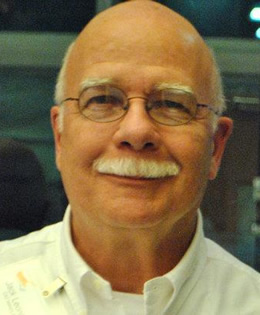| Register Online! | ||


Upcoming Seminars
| Ground Control Instructor Cert | |
| Allegheny County Police Academy | |
| TPR/Use of Force Instructor Cert | |
| Bucks County Academy | |
| TPR/Use of Force Instructor Re-Cert | |
| Bucks County Academy | |
| SHARP Instructor Cert | |
| Allegheny County Academy | |
| SHARP Instructor Re-certification | |
| Allegheny County Police Academy | |
| TPR/Use of Force Instructor Cert | |
| Carlisle Police Department | |
| TPR/Use of Force Instructor Re-Cert | |
| Carlisle Police Department | |
| Edged Weapon Countermeasures Instructor Cert | |
| Allegheny County Police Academy | |
When it comes to physical training, whether the arena is martial arts or law enforcement subject control, the definition of a master should be one of practical application.
Masters
Staff Instructor
The term "master" has been hyped and exaggerated in the world of martial arts. What began as a respectful title has been, for whatever reason, turned into some kind of ego competition. We no longer have just masters; now they have to be grand masters, international masters, supreme masters, etc. ad nauseum. A more simple way to look at the term is to say it refers to someone who has "mastered" a particular skill or discipline. Unfortunately, even this definition is open to individual interpretation, because mastering something means different things to different people.
When it comes to physical training, whether the arena is martial arts or law enforcement subject control, the definition of a master should be one of practical application. For example, one definition of a master is "One who can perform ordinary skills under extraordinary circumstances."
Keeping this definition in mind, what are police officers asked to do? They are trained in subject control, less than lethal weapons, and firearms while in the academy. Training with firearms is repeated regularly once the cadet becomes a police officer, even if this training is restricted to re-qualifications. Unfortunately such training, no matter how creative and realistic, cannot completely duplicate the experience an officer will have when he/she has to perform subject control and/or a deadly force response "for real."
In other words, a police officer is being asked to train to perform physical skills to the best of his/her ability. Such learning can certainly be enhanced by using scenario-based training and the use of inoculation exercises. This being said, the officer never really knows how he/she will react when faced when faced with a real physical confrontation until it occurs. How will that officer respond when under the stress of making an arrest, being assaulted, or being attacked with deadly force? Add to those situations the circumstances of variables such as officer/subject size and gender, environmental conditions, presence of weapons, number of subjects, etc. Finally, how much reaction/response time does the officer have?
Police officers are taught ordinary physical skills such as punching, kicking or kneeing a striking bag or an instructor or other participant wearing a protective suit. When they are working officers, they are asked to perform the skills when a subject is assaulting them. They are trained to fire at targets under various environmental conditions and/or time constraints, but the preparation is for performing the same task while the "target" is shooting at them. It seems clear that police officers are asked to perform skills as masters. That is to say, they are asked to perform ordinary skills under extraordinary conditions.
Logically, the last area that should be addressed is how officers will be able to maintain their skill levels sufficiently to effectively protect themselves while placing subjects under arrest? When it comes to non-lethal subject control, PPCT uses static training (sans resistance) only in the beginning stage of learning a defensive tactic. Once the officer has mastered the basics of the technique, a simulated resistance is introduced, moving the practice level up to Fluid. When the officer has moved up to this level of practice, or to the final level of Dynamic training, he or she never goes back to the Static mode of training unless a correction has to be made. For example, as explained by PPCT Staff Instructor Tom Jost, once an officer learns the basics of a technique, further practice should incorporate not only simulated resistance but also a transition to handcuffing.
Firearms training can also take advantage of this progression of training. The officer begins with accuracy shooting, and this is followed by instruction in point shooting. Once the officer is competent with these methods of firing, the training should move from "just punching holes in paper" to scenarios that utilize not only the presence of distractions (squad lights, sirens, night firing, etc.) but also things like moving between firing strings, moving targets, etc. The use of SIMS or Air Soft equipment makes the training more realistic, and certainly using one of the many firearms simulators can enhance the officers' skills as well.
The police officer trains to become a master, and then he/she must practice regularly to maintain that skill level. In PPCT's Straight Baton training video, Paul Farmer comments to Bruce Siddle, "Practice makes perfect." Mr. Siddle clarifies the comment by saying, "Perfect practice makes perfect." When it comes to defending oneself from either a lethal or a non-lethal assault, working to achieve perfection through practice is not only a logical goal but also one of practical necessity.